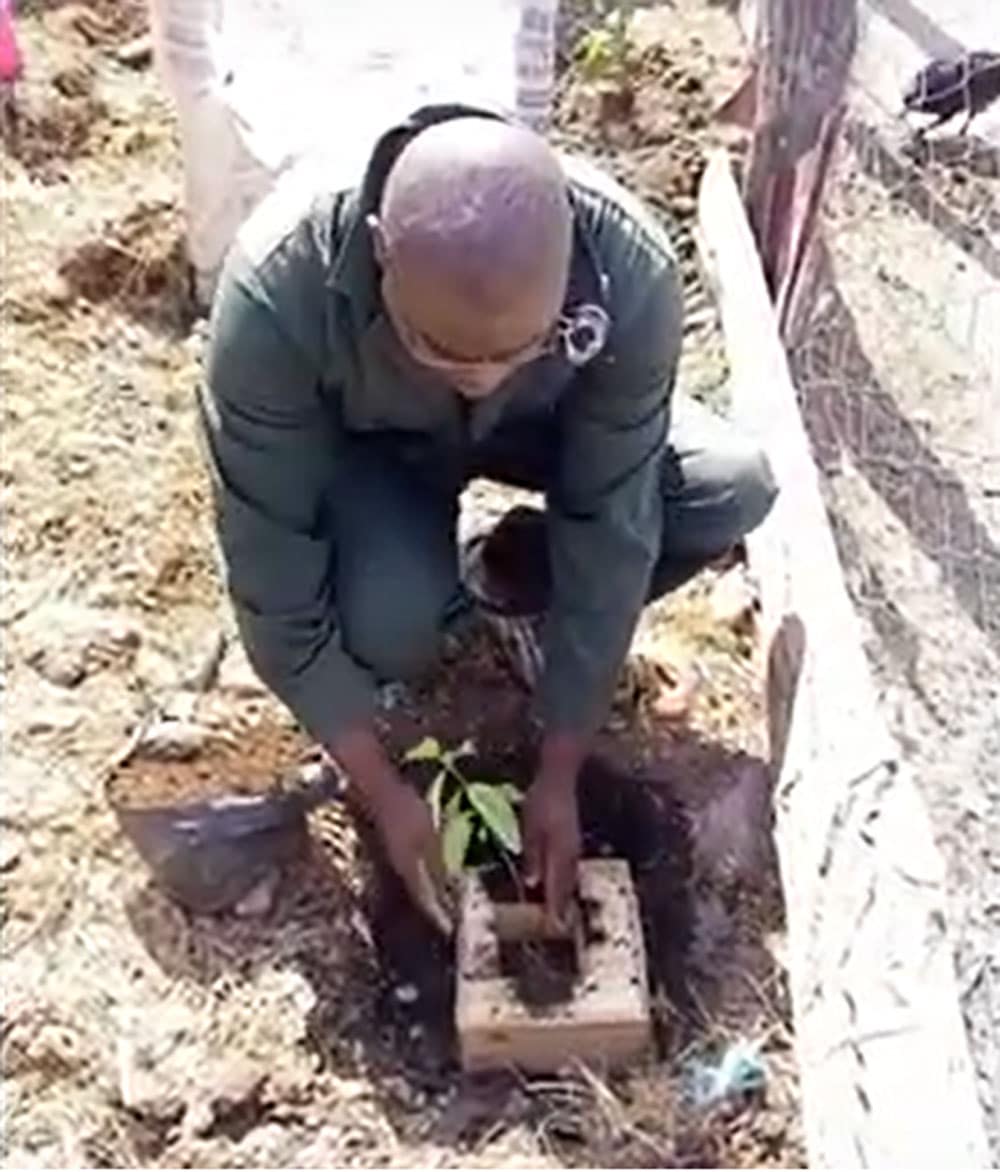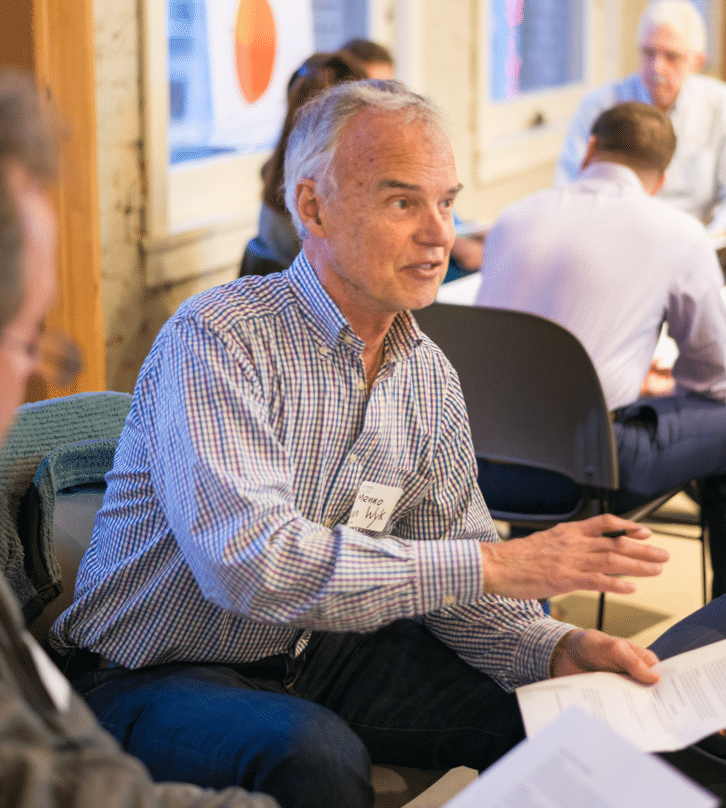In a video shared with Grow Further, Charles Mwangi and his partners spell out a clear and present danger to smallholder agriculture. “Declining soil quantity and quality in large parts of the developing world poses a threat to food security,” Mwangi warns. “More than 1.3 billion people live on agricultural land that is depleted.” Mwangi’s organization, Kenya-based Soil Doctors, sent us this video as part of their application showcasing an innovative solution to growing stronger, healthier, and better-yielding fruit trees on lands most observers would qualify as near-deserts.
“Our product allows trees to grow in soil that would otherwise not be conducive to growth,” Mwangi explained in an interview. “As it breaks down, it provides healthy microorganic life and an environment that is healthier for plant life due to the introduction of shade and increased water retention in the soil, among other factors.” Soil Doctors calls their innovation “carbon-sink boxes” and on first glance, these specialized planters appear to be an elegant, simple, and easy-to-use solution to dryland and degraded soil farming. Mwangi boasts that the technology is a “game changer”.
How it works
The video demonstrates the technology being referred to: a man assembles a square hollow box with space left empty in the middle for a plant or tree sapling. The sides are lined carefully with a mixture of rocks, organic waste matter, and these contraptions’ key ingredient: biochar. In our interview, Mwangi told Grow Further that he came up with the idea after Kenya instituted a ban on assorted plastics, including polyethylene tubing popular with tree nurseries. “I started researching alternative materials like banana leaves,” he recalled. “This project idea then materialized towards developing a packaging product that utilizes food wastes to rescue post-harvest losses and available rock minerals to enrich soils and capture carbon.”
In the video, Mwangi says these nutrient-rich, biodegradable planters are manufactured “by blending rock minerals, including olivine, with solid waste which is modified into biochar through pyrolysis,” a process for breaking down organic matter using high temperatures but without directly setting materials on fire. Proponents of climate change mitigation efforts see biochar as a promising way to dramatically lower the greenhouse gas footprint of agriculture, the “carbon sink” effect that Soil Doctors is referring to here.
“Ideally, the carbon-sink boxes will be used to grow trees or crops in different dry lands with different soil health conditions.”
Soil Doctors’ signature products “are hygroscopic and can retain water and soluble nutrients to be released slowly over time,” Mwangi explains in the video. In other words, farmers planting fruit trees can do so more reliably with the benefit of these devices.
Mwangi said the planters are specifically designed for drier or degraded soils. “Ideally, the carbon-sink boxes will be used to grow trees or crops in different dry lands with different soil health conditions,” he told us. He added that they are uniquely suited for fruit trees and coffee.
Bearing fruit
The sheaths encourage the growth of beneficial microorganisms while slowly feeding young trees with moisture and nutrients, Soil Doctors says. The material encasing the minerals and biochar mixture decays over time, leaving behind a ring of replenished, nutrient-rich soil surrounding the roots of young trees, encouraging stronger early growth even in dry and harsh conditions.
Mwangi says trial testing shows that these specialized planters can grow trees with stronger structures and cause plants to develop “resistance to pests and diseases and more intense flavor profiles of fruits.” He said product testing continues. “Initial preliminary trials have been undertaken in Laikipia County with 50 farmers,” Mwangi clarified. “1,000 carbon-sink boxes were used to plant native trees in this location in 2022, and the findings show that 857 trees survived the dry season, or about 85.7% survival rate.”
They hope the promise of applying biochar to degraded or less fertile soils will draw the attention of climate change mitigation activists and investors. But the main idea, for now, seems to be to win over Kenya’s smallholder farms. Soil Doctors plans to market their innovation to Kenya’s dryland farmers and farmers suffering from erosion or soil degradation. Perhaps this innovation may go global one day if it’s proven to aid Kenya’s farms in a significant way.
— Grow Further
Photo credit: Carbon-sink boxes demonstrated in a video posted to YouTube. Charles Mwangi/Soil Doctors.




